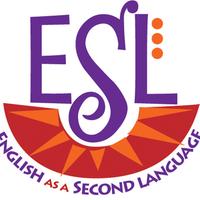Unit 96 Family Camping
||家族キャンプ
||acampamento em família
Referat 96 Familiencamping
Unidad 96 Camping familiar
Unità 96 Campeggio per famiglie
ユニット96 ファミリーキャンプ
유닛 96 가족 캠핑
Unidade 96 Acampamento familiar
Семейный кемпинг Unit 96
Birim 96 Aile Kampı
Блок 96 Сімейний кемпінг
单元 96 家庭露营
B : There are many popular leisure time activities, but one of the most enjoyable is family time.
|||||досуга|||но|||||приятным|||
|||||lazer||||||||agradável|||
|||||余暇|||||||||||
|||||дозвілля|||||||||||
|||||休闲时光||活动||||||最愉快的||家庭时光|
B: Hay muchas actividades de ocio populares, pero una de las más disfrutables es el tiempo en familia.
B : 人気のある余暇活動はたくさんありますが、最も楽しいもののひとつは家族の時間です。
В: Существует множество популярных видов досуга, но один из самых приятных - это семейный отдых.
B:有很多受欢迎的休闲活动,但最令人愉快的活动之一是家庭时光。
Most people enjoy being with their families.
|||和...在一起|||
Die meisten Menschen sind gerne mit ihrer Familie zusammen.
A la mayoría de las personas les gusta estar con sus familias.
Большинству людей нравится быть в кругу семьи.
大多数人喜欢与家人在一起。
There are many things to do with your family, too.
|||||||||тоже
También hay muchas cosas que hacer con tu familia.
Здесь есть чем заняться и с семьей.
还有很多事情需要和家人一起做。
Families can go to the movies, travel, visit museums, and play sports together.
家庭成员||||||||博物馆||||
||||||||||||разом
Las familias pueden ir al cine, viajar, visitar museos y practicar deportes juntas.
Семьи могут ходить в кино, путешествовать, посещать музеи и заниматься спортом вместе.
家人可以一起去看电影、旅行、参观博物馆和做运动。
The most common family activity is probably camping.
||распространенное|||||
||||||ймовірно|кемпінг
|||||||露营活动
La actividad familiar más común es probablemente acampar.
Самым распространенным семейным развлечением, пожалуй, является поход.
最常见的家庭活动可能是露营。
Many families like camping.
|Багато родин||багато сімей люблять кемпінг
A muchas familias les gusta acampar.
Многие семьи любят ходить в походы.
It is a chance for the whole family to work together.
|||机会||||||一起工作|
||||||||||вместе
Es ist eine Chance für die ganze Familie, zusammenzuarbeiten.
Es una oportunidad para que toda la familia trabaje junta.
Это возможность для всей семьи работать вместе.
这是全家人共同努力的机会。
They can stay in the wild.
они|||||дикой
|||||na natureza
||залишатися|||дикій природі
|||||野外
Sie können in der Wildnis bleiben.
Pueden quedarse en la naturaleza.
Они могут остаться в дикой природе.
它们可以留在野外。
Children gather dry wood for the fire.
|收集|||||
|reúnem|madeira seca||||
|собирают|сухое||||
Los niños recogen leña seca para el fuego.
子供たちは焚き火のために乾いた薪を集める。
Дети собирают сухие дрова для костра.
孩子们收集干木柴来生火。
Their parents set up the tents.
|||||帐篷
|||||as tendas
|||||палатки
Ihre Eltern bauen die Zelte auf.
Sus padres montan las tiendas.
Их родители установили палатки.
Then the whole family gathers around the fire.
||||围拢|围着||
||||集まる|||
então||||reúne-se|||
||||собирается|||
Luego toda la familia se reúne alrededor del fuego.
そして家族全員が火を囲む。
Затем вся семья собирается вокруг костра.
然后全家人聚集在火堆旁。
They enjoy a special meal together.
они|||особую||
Disfrutan juntos una comida especial.
Они вместе наслаждаются особым ужином.
他们一起享用了一顿特别的餐点。
Then, they set off into the woods with a compass and a map.
|||出发|||树林里|||指南针|||
||||||a floresta||||||
||||||лес||||||
Luego, se adentraron en el bosque con una brújula y un mapa.
それから、彼らはコンパスと地図を持って森へ出発しました。
Затем они отправились в лес с компасом и картой.
然后,他们带着指南针和地图出发进入森林。
After hiking the trails, everyone gets a fishing pole.
после||||все|получает||удочка|
|||トレイル|||||
|||as trilhas|||||
|徒步旅行||小径||||钓鱼|钓鱼竿
Después de recorrer los senderos, todos reciben una caña de pescar.
После похода по тропам каждый получает удочку.
徒步完山路后,每个人都会得到一根钓鱼竿。
Each person casts the fishing line out into the river.
||抛出||钓鱼线|||||
||投げる|||||||
||lança|||||||
Jede Person wirft die Angelschnur in den Fluss aus.
Cada persona lanza la línea de pesca al río.
一人一人が釣り糸を川に投げ込みます。
Каждый забрасывает леску в реку.
每个人都把鱼线抛入河中。
Who gets the biggest fish?
|поймает|||
Кому достанется самая большая рыба?
It’s a great contest.
|||比赛
|||competição
|||конкурс
Это замечательный конкурс.
这是一场精彩的比赛。
Later, the children clean the fish by the river.
позже||||||||
Más tarde, los niños limpian los peces junto al río.
その後、子供たちは川で魚をきれいにします。
Позже дети чистят рыбу у реки.
随后,孩子们在河边清理鱼。
They take the scales off the fish.
они|||чешую|||
|||鱼鳞|||
|||うろこ|||
|||as escamas|||
|||луска|||
Le quitan las escamas a los peces.
彼らは魚からウロコを取ります。
Они снимают с рыбы чешую.
他们把鱼鳞剥掉。
Mom fries the fish over the campfire.
|妈妈在营火上煎鱼。|||||篝火
Mama brät den Fisch über dem Lagerfeuer.
Mamá fríe los peces sobre la fogata.
ママはキャンプファイヤーで魚を炒める。
Мама жарит рыбу на костре.
妈妈在篝火上煎鱼。
Dad cleans up when everyone is finished.
|打扫|||||
|片付ける|||||
|limpa|||||
|убирает|||все||
Papá limpia cuando todos han terminado.
お父さんは皆が終わったら片付けます。
Папа убирает, когда все заканчивают.
当所有人结束后,爸爸就会清理现场。
You don’t want wild animals coming to eat your leftovers!
ты||хочешь|||||||остатки
|||||||||残り物
|||||||||restos de comida
|||野生的||||||剩饭剩菜
¡No quieres que animales salvajes vengan a comer tus sobras!
野生の動物に残飯を食べられたくないだろう!
Вы же не хотите, чтобы дикие животные пришли полакомиться вашими остатками!
你不希望野生动物来吃你的剩菜剩饭!
Then everyone goes into their tents for a restful night.
||||||||спокойную|
||||||||宁静的|
||||||||安らかな|
||||||||tranquila|
||||||||спокійну ніч|
Después todos van a sus tiendas para una noche de descanso.
Затем все отправляются в свои палатки, чтобы спокойно провести ночь.
然后每个人都回到自己的帐篷,享受宁静的夜晚。
While there are many things that families can do together, camping is probably the most exciting.
||||||||||кемпинг|||||
Es gibt zwar viele Dinge, die Familien gemeinsam unternehmen können, aber Camping ist wahrscheinlich das Spannendste.
Si bien hay muchas cosas que las familias pueden hacer juntas, acampar es probablemente la más emocionante.
家族で一緒にできることはたくさんありますが、キャンプはおそらく最もエキサイティングです。
Embora haja muitas coisas que as famílias podem fazer juntas, acampar é provavelmente o mais emocionante.
Есть много вещей, которые семьи могут делать вместе, но поход - это, пожалуй, самое увлекательное занятие.
虽然家人可以一起做很多事情,但露营可能是最令人兴奋的。

